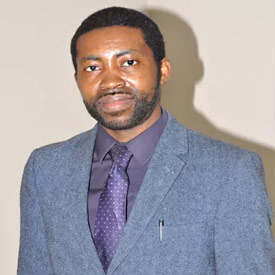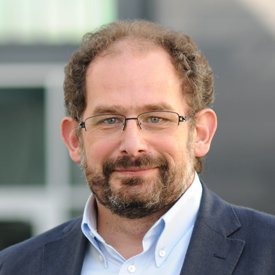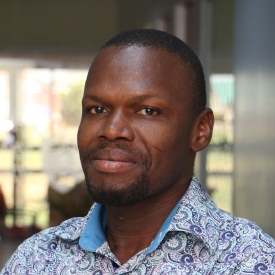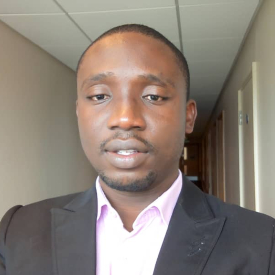RECIRCULATE International Impact Webinar
Date & Time
Thursday 27th January 2022, 10:00am – 12:00pm GMT
Location
Microsoft Teams Webinar – Free registration
Event description
One of the biggest challenges that Sub-Saharan African universities and research organisations face is the huge gaps between academic research, the private sector/industry and government. By geographical and operational disposition, African universities and research organizations seem cut off from industry and this has affected its relevance, capacity to produce high quality and employable graduates and the capacity to produce goods and services that solves practical challenges in the society.
There is no arguing that huge gaps exist between scientific research and the impact of research in many countries in Sub-Saharan Africa. This provides an urgent need to design policy tools, knowledge transfer programmes and pathways-to-impact models that ensures a new era of impact-oriented research and innovation in African countries. At the heart of this, is the need for strategic equitable partnerships and collaboration strategies for societal transformation. However, it also requires for research to be co-designed with impact in mind from the onset which in itself requires a total paradigm shift.
An important question is why African academics and researchers do not think of the impact of their research. Is it because they operate in different worlds with little or no mutual interests with research users? Is it because there are no industry partners for them to collaborate with in the first place? Or is it just a question of institutional or societal challenges that makes research focused on just investigation? It is becoming clear that there are mutual interests and there are industry partners to collaborate with especially when most universities would usually have between 100 and 1000 SMEs within and outside the campus within a kilometre radius. Also, it is not difficult to find a good profile of stakeholder communities who are potential beneficiaries of university research.
As Sub-Saharan Africa witnesses an increase in private sector investment, technological development and industrialization across a wide range of sectors, there is need for national policy level discussions on sustainable strategic partnership models that consider equity, fairness and sustainability. Currently, global models show that African universities and research organisations can be ‘anchors’ for co-designing and supporting impact-oriented, research-driven eco-innovation partnerships which ultimately deliver “sustainable solutions”. Universities can also play the key role in delivering the high level (graduate/post-graduate) training that is essential to drive forward eco-innovative policies, products and services. The ultimate question now is – has the RECIRCULATE and ACTUATE Projects influenced the research agenda of young and early career researchers in Africa and what has been their experiences? This webinar would try to highlight the key outputs of research and its impact and potential legacy in Africa.
The objectives of this International Partnership webinar therefore include:
Highlighting the objectives and progress of the UK Government funded Global Challenges Research Fund (GCRF) 7 Million Pounds RECIRCULATE and the 800,000 Pounds ACTUATE Project and the projects progress so far in Africa especially as it officially comes to an end.Exploring the challenges and opportunities for ‘effective, equitable and sustainable research that drives impact on societies in Africa and internationally.Highlighting specific research outputs worthy of note from the perspectives of early career researchers and post-graduates who are the future of the African continent. Providing an opportunity for further engagement with current and new stakeholders in different African countries for future collaborations, investments and development work.
10:00 – 10:05Welcome & Introduction of ParticipantsDr Akan Odon10:05- 10:15Introduction to RECIRCULATE & ACTUATE ProjectsProf. Kirk Semple10:15 – 10:30Research Outputs and Impact – Stimulating Entrepreneurial Thinking in Scientists (SETS)Anthony N-Yelkabong10:30 – 10:45Research Outputs and Impact – Water and SanitationEsther Agyabeng-Fofie10:45 – 11:00Stakeholder Interaction11:00 – 11:15Research Outputs and Impact – Bioenergy ProductionNewton Ihoeghian11:15 – 11:30 Research Outputs and Impact – Agricultural ProductionValerie Ifeyinwa Ofili-Edosa11:30 – 11:45Stakeholder Interaction11:45 – 12:00Conclusion/Wrap Up
Speakers

Dr Akan Odon
Akan is an Africa Strategy Adviser for Lancaster University and a moderator of our webinars.

Prof. Kirk Semple
Kirk is a Professor of Environmental Microbiology at Lancaster Environment Centre and Director for RECIRCULATE & ACTUATE.

Anthony N-Yelkabong
Anthony is the Programme Manager of SETS at Lancaster University Ghana and part of of our “Entrepreneurship and Innovation” work package.

Esther Agyabeng-Fofie
Esther is Graduate Researcher at Lancaster University and part of our “Water for Energy Production” work package.

Newton Ihoeghian
Newton is a lecturer at the University of Benin, Nigeria and part of our “Water for Energy Production” work package.

Valerie Ifeyinwa Ofili Edosa
Valerie is a Graduate Researcher at the University of Benin, Nigeria and part of our “Water for Energy Production” work package.
